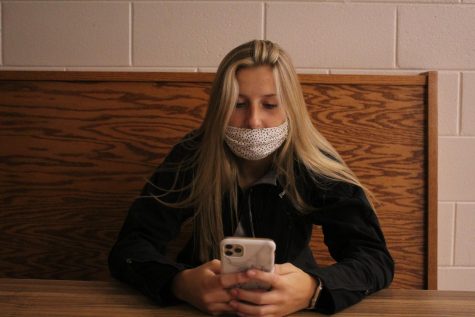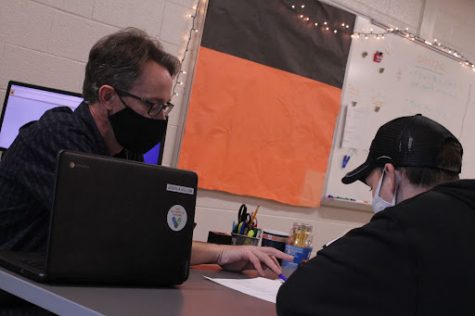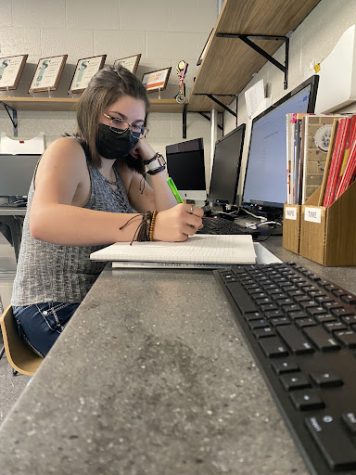Sleep deprivation, epidemic among young teens
Homework affects students required 8 hours of sleep
Sleep is an important part of our health, but many students seem to not be getting enough of it. Without sleep, it can get much harder to focus, moods can change for the worse and motivation can become faint.
“The average teenagers need at least 8-10 hours of sleep each night to perform at their fullest,” according to the National Sleep Foundation. And, teenagers commonly fall into sleep debt and lose out on a full night’s rest.
Sleep debt is defined by Harvard health as the consequences of getting less than an optimal amount of sleep. These include loss of concentration, fatigue or inadequate job performance. Most teens’ sleep schedule are in the red.
Reilly Caroen, a senior, is no different. “Every night, I get 6 or 7 hours of sleep,” Caroen said. A lack of sleep can really affect a student’s performance at school. His sleep schedule negatively affects his school work. “I feel like I can’t focus as well, and all I think about is crawling back to bed,” he said. “I go to bed late because I have so much homework to do.”
Caroen, like many other students, represents his age group; Stanford Medicine even called sleep deprivation in students an epidemic. If teens aren’t able to focus in school, then they aren’t able to learn in school either.
Sophomore Dylan Powers is in the same situation. She does not get enough sleep at night. “I only get about 6 to 7 hours every night. It’s harder to focus, especially in my first block,” Powers said.
NIH (National Institutes of Health) writes that sleep deprivation, either from regularly not allowing enough time for sleep or due to a physical or mental problem that prevents restful sleep, produces noticeable symptoms.
Although, feeling drowsy during the day, routinely falling asleep within only 5 minutes of lying down in bed for the night, experiencing “microsleeps,” which are very brief episodes of sleep while being awake these may due to too little of sleep at night.
Junior Alic Hawkins has some struggles falling asleep on weekdays. “My mind is racing and I can’t stop it,” Hawkins said. She stays up to 1:00 a.m. and wakes up at 6:25 a.m. for school. That’s a mere 5 hours and 25 minutes of sleep a night.
To answer the teen question of why they can’t sleep at night, the National Sleep Foundation found that “teens tend to have irregular sleep patterns across the week — they typically stay up late and sleep in late on the weekends, which can affect their biological clocks and hurt the quality of their sleep.”
Sleep. “Yeah that I don’t get,” said junior Morgan King.

I think of myself as a confident person, a person that takes risks if need be. I also think of myself as someone you can rely on if you need someone to...







